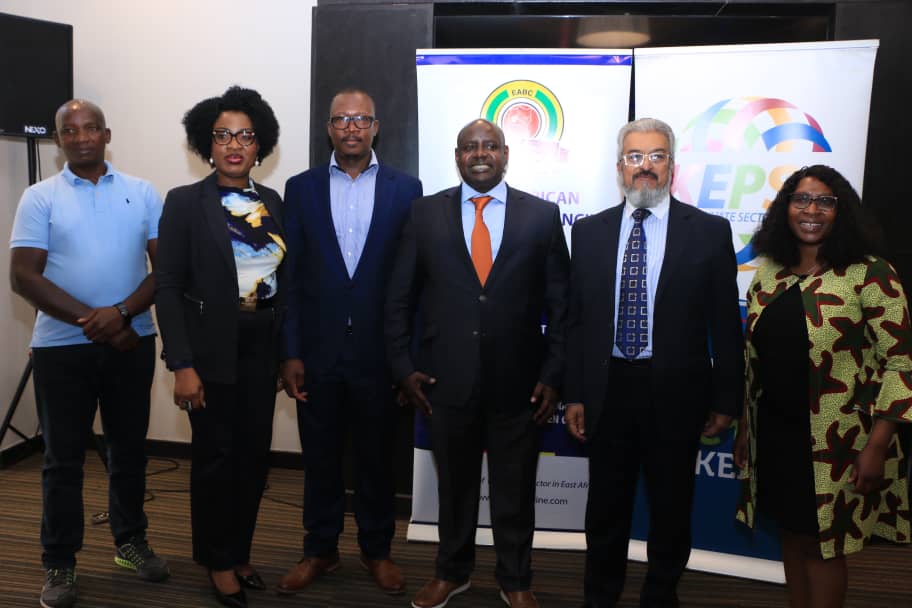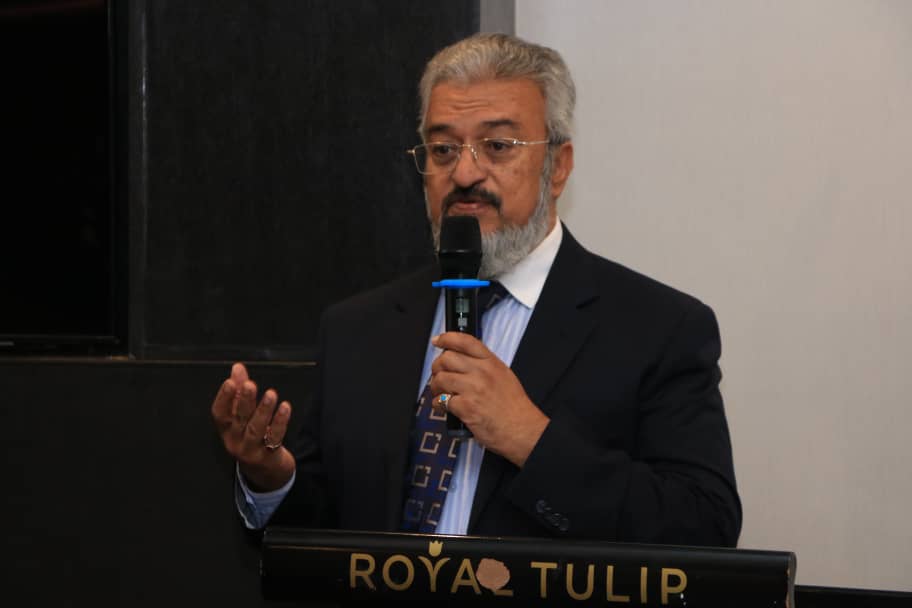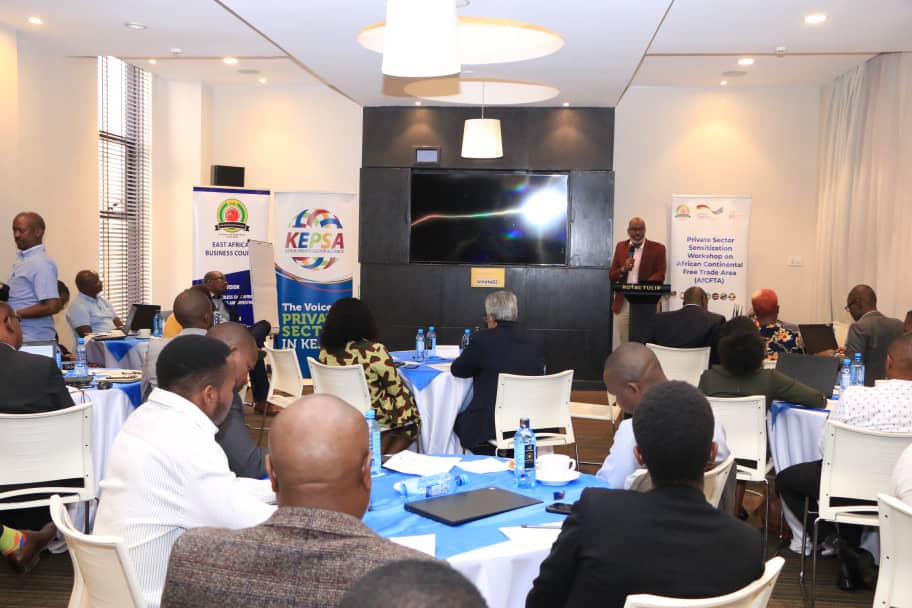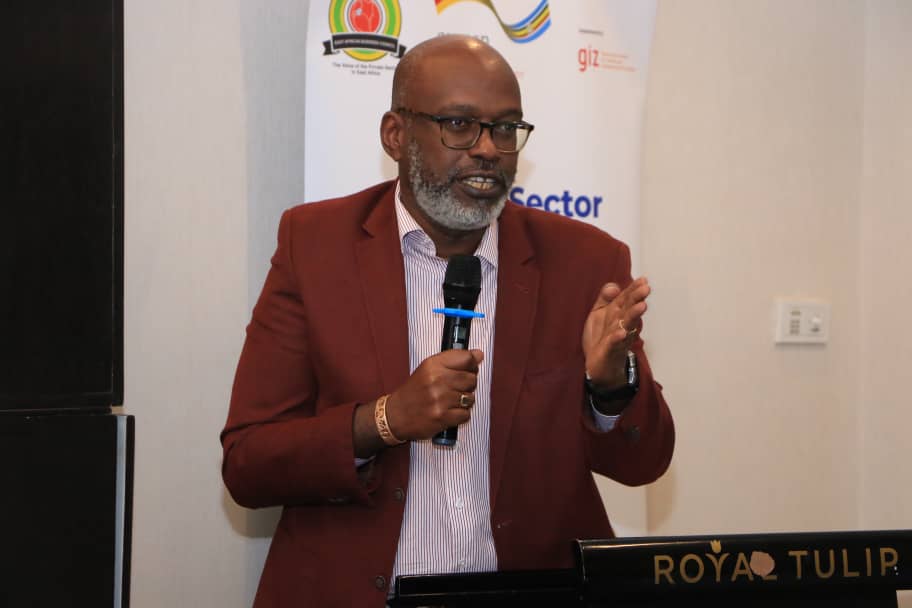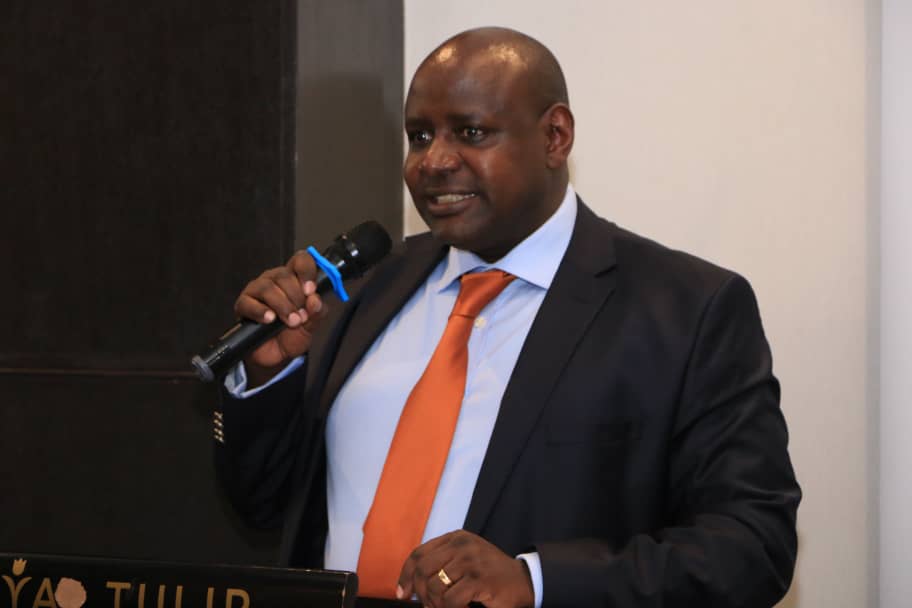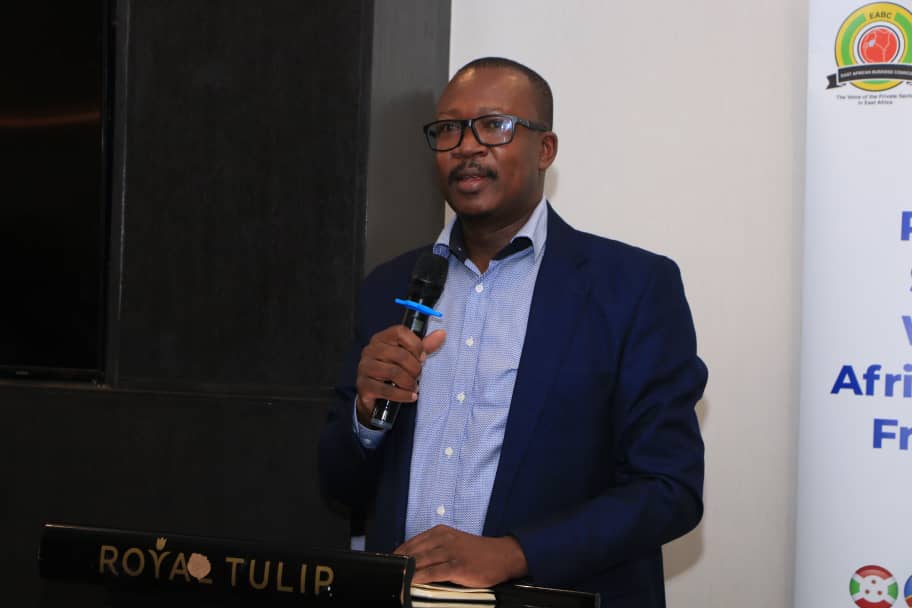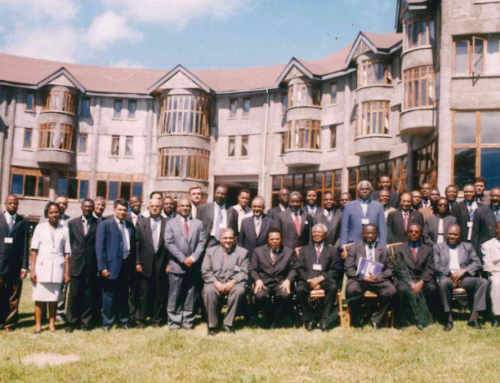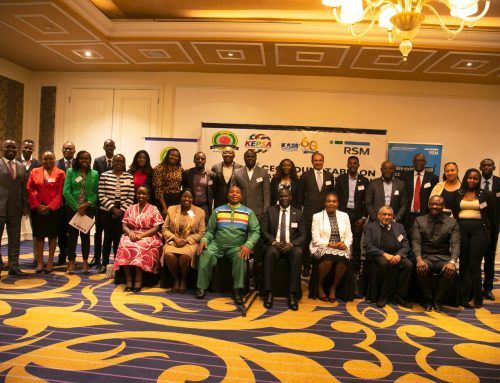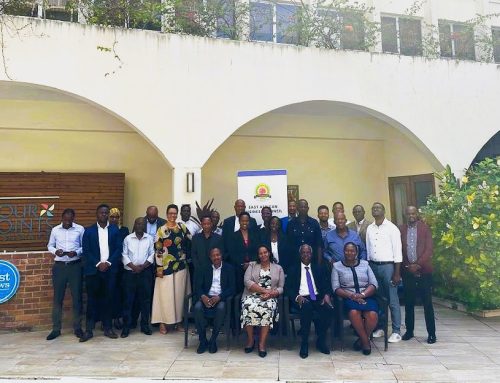Friday, 24th February 2023, Nairobi, Kenya: – Mr. John Bosco Kalisa explained the implementation of the African Continental Free Trade Area (AfCFTA) is projected to increase real income for EAC countries, following the reduction in trade costs relating to Trade Facilitation, Non-Tariff Measures (NTMs) and Non-Tariff Barrie’s (NTBs).
The e real income is projected to increase between 2021-2035 as follows: Kenya (11.8%); Tanzania (10%); Uganda (3.8%); Rwanda (3.6%) (World Bank).
This was elaborated by EABC CEO Mr. John Bosco during the East African Business Council (EABC) GIZ- Support to East African Market-Driven and People-Centered Integration Programme (SEAMPEC) II 2-day Private Sector Sensitization Workshop on African Continental Free Trade Area (AfCFTA) Agreement on Trade in Goods Protocol taking place in Nairobi, Kenya.
The KEPSA Deputy CEO Mr. Victor Ogola said that non-tariff barriers are derailing the realization of the AfCFTA pact. He said, “Building Africa into a continental village needs the understanding of the characteristics of a village and that this should start from a political level.”
He expounded Kenya has exported batteries and Tea to Ghana under the AfCFTA Guided Trade Initiative and plans are underway to export electric cables and automobile parts too.
EABC Board Director Mr. Mucai Kunyiha, urged the Kenyan private sector to take a proactive role by trading under the AfCFTA.
Mr. Kunyiha said, the AfCFTA Agreement is a clear testimony that the African States have committed to doing more trade and investment among themselves by creating a market of 1.3 billion people with a combined gross domestic product (GDP) valued at USD 3.4 trillion.
On his part, EABC Goodwill Ambassador on Transport and Logistics, Mr. Auni Bhaiji said, the Implementation of AFCFTA is projected to increase Intra-African trade significantly, especially in manufacturing. For example, the share of intra-AfCFTA exports to total global exports will increase as follows: Tanzania (28%); Uganda (29%); Rwanda (33%) and Kenya (43%).
The private sector workshop on AfCFTA convened 55 businesses in Kenya who learned about AfCFTA Trade in Goods Protocol and its annexes (especially Rules of Origin, Tariff Concession and Non-Tariff Barriers) and implications to businesses in the EAC bloc.
Other industry leaders who officiated the workshop include; KAM Head of Policy Research & Advocacy Mr. Job Wanjohi and KEPROBA Acting CEO Ms. Floice Mukabana.
The AfCFTA Agreement envisages boosting intra-African trade through the gradual elimination of tariffs on over 90 African goods and the removal of non-tariff barriers and trade restrictions on goods and services, respectively.
The EAC exports of goods to Africa stood at USD 7.9 billion composing 42% share of EAC total exports of goods to the world (USD 18.7 billion). Top EAC exports to Africa included precious stones, coffee, tea, cement, animal fats, mineral oils & iron and steel.
East Africa as a bloc has great potential to export vegetables, tea, rice, coffee, sugar, textile products, soap, sesame seeds, edible oils, tubers and milk to the continent.
The workshop was moderated by Mr. Adrian Njau and facilitated by Prof. Seth Gor, Mr. Walter Kamau, Mr. Abel Kamau, and Brian Kalekye.

